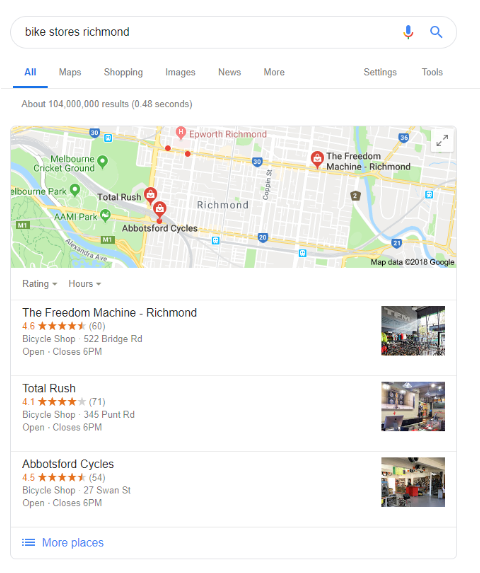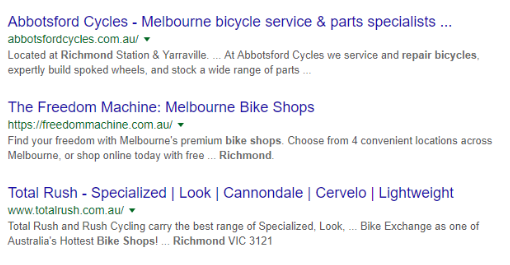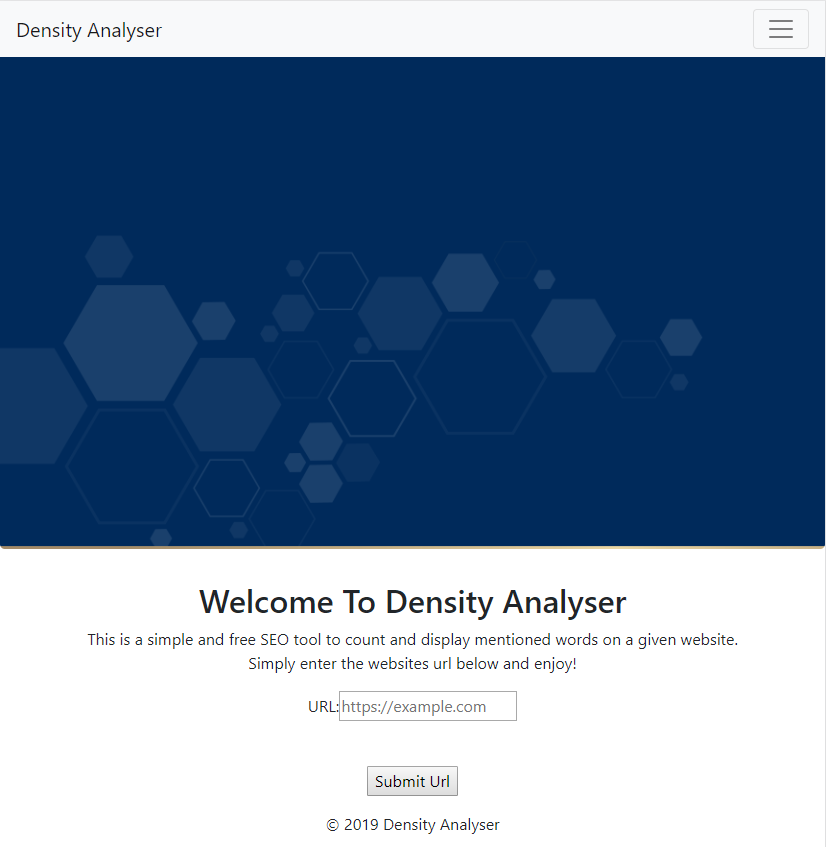Keyword Research Case Study
What is keyword targeting?
Keyword targeting is a large part of digital marketing (seo). Keyword targeting is the process of working out what your page is about and making sure that your pages ranks as high as possible for that topic. Keyword targeting comes in the form of search term keywords. When a user searches for a term in Google, each word in that term is considered a keyword. The sites/pages that contain the most relevant keywords to that search term will usually be displayed in the results.
Example Case Study
Bill’s Bikes is a local bike store in Richmond. He has come to us to get his business’s website homepage to rank higher for the search term “Bike stores in Richmond”. Currently Bill’s Bikes ranks on the second page for that search term. Our job as digital marketers is to increase Bill’s Homepage ranking to contain more relevant content regarding “Bike stores in Richmond”.
Tools to use for keyword research
In our quest to improving Bill’s Bikes Homepage ranking we will be using the following tools:
Types of keywords
In digital marketing there are a few different types of keyword/s. Keywords often come in the combination of single, coupled, or trailing keywords.
- Single : Bikes
- Coupled : Bike stores, Bike sales
- Trailing : Best value bike stores in Richmond
In keyword targeting each word in the search term is considered a keyword that your website/ web page should relate to. Often a site that contains the most uses of each keyword will rank higher in the search results as it is considered to be most relevant.
In keyword targeting each type of keyword is given a ranking of how easy it will be to rank for that keyword. A single or coupled keyword is considered a broad and general search term, the more broad or general the search term the greater the competition. When the competition is greater other factors come into play regarding ranking such as domain/page authority and back links. Domain and back links will be discussed in a future blog, however they will be the key deciders of keyword ranking in competitive search terms.
Disclaimer:
Google and other search engines are very clever and can tell if a site is just stuffing it’s content with keywords. The sites content should naturally be using those keywords and will rank higher if the quality of the content is at a high standard and considered useful to a user.
Keyword Research
Bill’s bikes has come to us and requested that we help him rank higher for particular keywords / phrases (trailing keywords) “Bike stores Richmond”
Our first port of call is to work out how competitive this keyword is, and workout it’s feasibility.

First we notice that this search term returns 104 million results. Stepping back it is obvious that there are not 104 million bike stores in Richmond. However it is a competitive search term.
Secondly, the first result Google returns is of Google Local. This is a positive sign as Google is taking preference of business over bicycle related websites. As digital markers our first stage would be to make sure that Bill’s bikes Google business information is setup. (As this is a keyword research case study lets ignore that…).

Here are the first 3 results for the search term “Bike stores in Richmond”. A study on Page One traffic was conducted and showed that 33% of traffic on page one went to the first result, 15% to the second result, and 9% going to the third result (making up 57% of all page one traffic goes to the first 3 results). When you consider that google displays 10 results on each page, and 57% of all traffic goes to less that a third of the results, you can start to appreciate why it is so important to list in the first 3 results for your desired search terms.
Enough with the statics, now that we have the first three results lets see why they rank where they are. A simple yet effective tool to do this is Density-Analyser.Simply enter a sites url and it will return all the words mention on that page with a total of how many times they have been used. This is a simple yet effective method to use for keyword research. When using this tool first look for the keywords used in the search term and note how often they are used, this is a good way to build a baseline for your sites content.

Here are the results :
- Abbotsford:
- Bikes : 5
- Bicycle : 8
- Bicycles : 1
- Stores : 0
- Store : 7
- Shop : 1
- Richmond : 3
- Melbourne : 4
- Bikes : 5
- Freedom Machine:
- Bikes : 14
- Bike : 7
- Bicycle : 1
- Bicycles : 1
- Stores : 1
- Store : 4
- Shop : 7
- Richmond : 7
- Melbourne : 9
- Melbourne’s : 5
- Bikes : 14
- Total Rush:
- Bikes : 7
- Bike : 9
- Bicycle : 0
- Bicycles : 1
- Stores : 0
- Store : 3
- Shop : 5
- Richmond : 3
- Melbourne : 1
- Melbourne’s : 1
- Bikes : 7
Here we can see that obviously they are all bike stores. Next have a look at what other keywords these sites use. For example just because they rank for terms like “Bike” doesn’t mean they only use that term. From the results above they also use synonyms like bicycle, which google picks up on to determine the context of the content. So the more synonyms you use for a topic the higher the chance of ranking in the top 3.
The other important lesson to be had is that using a simple tool like Density Analyser you can build a base line of the competition that you can build your site on, and take advantage of opportunities they have missed.